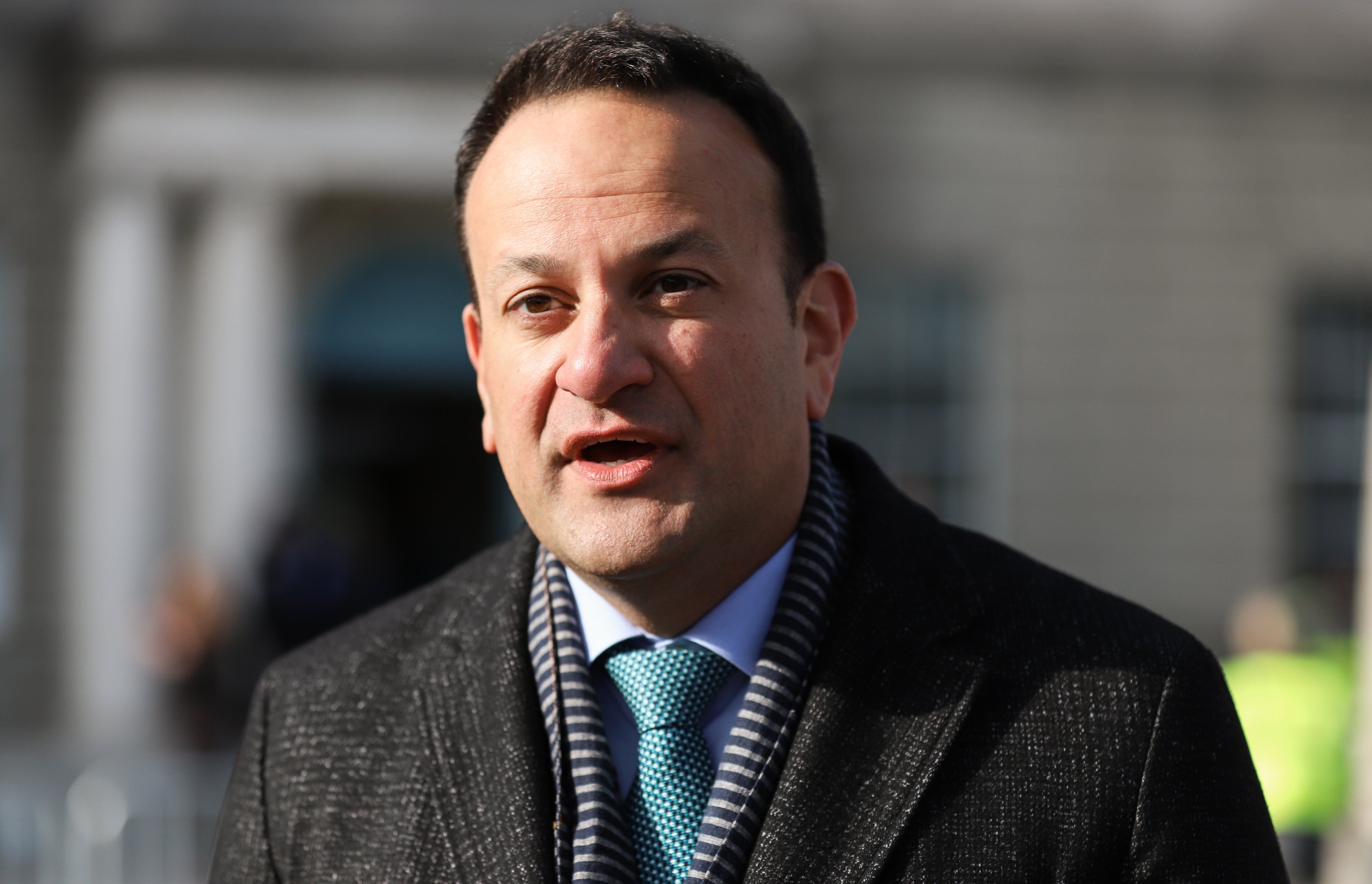Border poll not appropriate or right at this time – Varadkar
The Irish deputy premier said he also wants clarity around when a referendum of Irish unity would be called.

An Irish border poll would “not be appropriate or right” at this time, Ireland’s deputy premier has said.
However, Leo Varadkar has called for the tests around when Northern Ireland Secretary Brandon Lewis should call a referendum on Irish unity to be clarified.
The Tanaiste, who is set to become Taoiseach in December, described the aspiration to a united Ireland as a “legitimate one”.
But he added: “I don’t think it’s appropriate or right at this time.
“Fundamentally, because I think we need to get the Assembly and Executive up and running.
“We need to resolve the issues around protocol. And I think that can be done.”
Mr Varadkar told BBC Northern Ireland’s Sunday Politics programme he did not believe the tests laid out in the Belfast Agreement had been met.
He said while Sinn Fein emerged as the largest party for the first time in the Northern Ireland Assembly, they did not gain any seats, and said the number of MLAs who want a united Ireland was lower now than in the previous mandate.
“A border poll at this stage would be both divisive and defeated, and that wouldn’t be a good outcome for anyone,” he said.
In terms of the outcome of any future border poll, he said 50% plus one was not desirable.
“You’d end up having a very large minority of people being brought into a united Ireland they didn’t want to be part of,” he said.
“What I would like to try and achieve is as big a majority as possible.
“But I do think one thing we should do is clarify the tests around when a border poll can and should happen.
“Because I doubt any Secretary of State would make that decision without consulting the Prime Minister and the Cabinet and it doesn’t really say clearly how that test is applied as, to whether there is consistent public support for it.
“Is the Secretary of State supposed to look at the Assembly election results, is it independent polls, what is it, and I think that’s something that really ought to be clarified and could be clarified.”
Responding, Sinn Fein National chairperson Declan Kearney accused the Irish government of “lacking ambition”.
He also called for the Irish government to “immediately establish a Citizens’ Assembly on Irish unity”.
“There is a responsibility on the Irish government to plan for constitutional change on this island, and that should start with the establishment of a Citizens’ Assembly to discuss for the future without any further delay,” he said.
“Recent elections north and south have shown that the appetite for change and a new Ireland has never been stronger. That reality cannot be ignored.
“Irish government ministers need to be a persuaders for a new Ireland, based on the will of the people, and to lead orderly preparations for unity referendums, north and south. This government should not be burying its head in the sand. Leadership needs to be demonstrated.”
Meanwhile, Mr Varadkar spoke of his respect for DUP leader Sir Jeffrey Donaldson as “open and engaging” and someone he believes he can work with.
“But that’s not in any way to be naive about it, he is someone who has very firm and very strong views, I’m not saying I am going to persuade him of my views but he’s definitely someone who I believe we can work with, someone I respect and I hope to see him as a minister in the Executive soon,” he said.
Mr Varadkar is set to become Taoiseach again later this year under the terms of the government deal agreed between Fine Gael, Fianna Fail and the Green Party.
He has insisted he is “not particularly worried” about opinion polls which put Sinn Fein well ahead of Fine Gael and Fianna Fail in the republic, insisting they don’t predict the outcome of elections, pointing to the results of the last Irish general election.
“It doesn’t unduly bother me… I know that opinion polls don’t predict the outcome of elections but even if you do look at those polls, one thing they do show – and we’re midterm at the moment – is the combined support of the government parties is between 40 and 50%,” he said.
“That says to me that it is possible for this Government to be re-elected, and obviously I would like Fine Gael to be able to be part of the next government and to be the strongest party in that Government but the way we achieve that is not by focusing on Sinn Fein in my view but it’s by focusing on the things that people care about the most.”
Bookmark popover
Removed from bookmarks